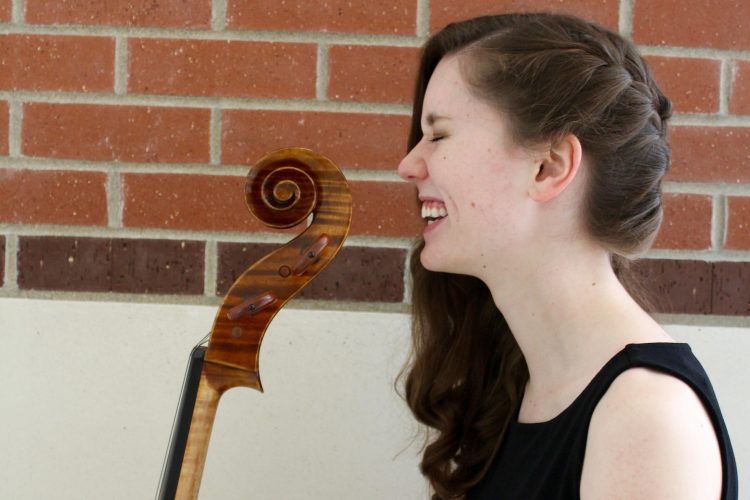
Part 2 of 3 by Erin Lupardus
Whenever I get in touch with someone from back home¹, I am inevitably asked the dreaded question: “How is your Fulbright going?” I dread this question not because I don’t want to share with others, not because I am tired of answering, and certainly not because I am ungrateful for this experience. I dread this question because it is impossible to answer both honestly and succinctly. A wad of potential adjectives creeps up my throat: crazy, frustrating, blissful, miserable, transformative, terrifying, beautiful! Which stories could I tell that best fit the mood? Which aspects could I include that you would find most interesting? Are you just asking because you want to be polite, or do you actually want to hear the long-winded brunt of it? Given this wonderful opportunity to write for Early Music America, I rummaged through my messy mental filing cabinet and found it most relevant to share my renewed perspective on something we have no doubt all experienced but to which we perhaps never put a name—Student Crisis Mode.
Student Crisis Mode was affectionately named by my dear undergraduate cello professor, Dr. Eric Edberg. A marvelous pedagogue and performer, he first explained the term to me when I was on the verge of a mental breakdown during a lesson in my first semester of college.² The term can be defined as an overwhelming feeling of chaos and despair accompanied with imposter syndrome, low self-confidence, and a high stress level induced by information overload—in short, an existential crisis triggered by the realization, “Oh god, I don’t know anything!” Though I didn’t have a name for it at the time, I had previously undergone these crises several times yet had always somehow survived and made it to the other side with enough time to look back and think, “Well, that wasn’t so bad!”
Throughout this year, I have experienced and witnessed Student Crisis Mode many times. Having only played baroque cello for a year and a half, I have faced a steep learning curve in my new scholastic realm. I have felt unqualified to call myself a graduate student in a field I have only just begun to investigate. I have felt amateurish in comparison to my much more experienced peers. I have felt untalented and pathetic in my inability to improvise—a supposedly innate musical skill that all true musicians possess yet I unquestionably lack. I have felt unintelligent and foolish struggling to speak German fluently despite having studied it for seven years. I have felt uncool and embarrassed attempting to give engaging lessons to my 300 Austrian teenagers. Yet, when I looked upon the horrified faces on one of my classes of 15-year-olds when I tried to explain how to write a cover letter in English, I was struck by the liberating realization that all of these horrible feelings are familiar and welcoming. To learn is to doubt, to suffer, to question, to mourn! We all feel incompetent and useless at least once in our lives, and brief periods of overwhelming stress, fear, and uncertainty every now and then is often just what we need for a major breakthrough.
In my experience, Student Crisis Mode is the most important stage of the learning process; it reminds us why we choose to continue studying what we love even when it tests us and, in our desperate need to feel capable again, opens our hearts to embracing radical ideas and new interpretations. These precious moments of simultaneous struggle and inspiration are the touchstones of my Fulbright adventure thus far; I am excited for the opportunity to prevail over my next crisis.
- As I have had many “homes,” I mean this in the broader sense of “west of the Atlantic ocean.” It saddens my parents that, for the time being, I refer to Linz as my home.
- As probably resonates with most college students, I experienced at least ten more mental breakdowns after that as well.
Read Part 1 of Erin’s Fulbright journey from September 2018

Having enjoyed performing in classical, contemporary, and Broadway settings, promising young cellist Erin Lupardus embarks on a newfound journey into the baroque world. While studying abroad in Vienna, she was enthralled by a Historical Performance Practice course and yearned to know more about this captivating chapter of music history. She received a Fulbright US Student grant to research baroque music and teach English in Linz, Austria for the 2018-2019 academic year.
Though a native Oklahoman, she earned her Bachelor of Music in Cello Performance and German, magna cum laude, at DePauw University in Indiana and currently studies baroque cello at the Anton Bruckner Privatuniversität in Austria. She has studied with Claire Pottinger-Schmidt, Joanna Blendulf, Dr. Eric Edberg, Josef Luitz, Tomasz Zięba, and Dr. Jonathan Ruck. Lupardus is passionate about the arts in all forms and seeks to bridge cultural gaps through creative expression.

